

Shaping the Future of Food Together
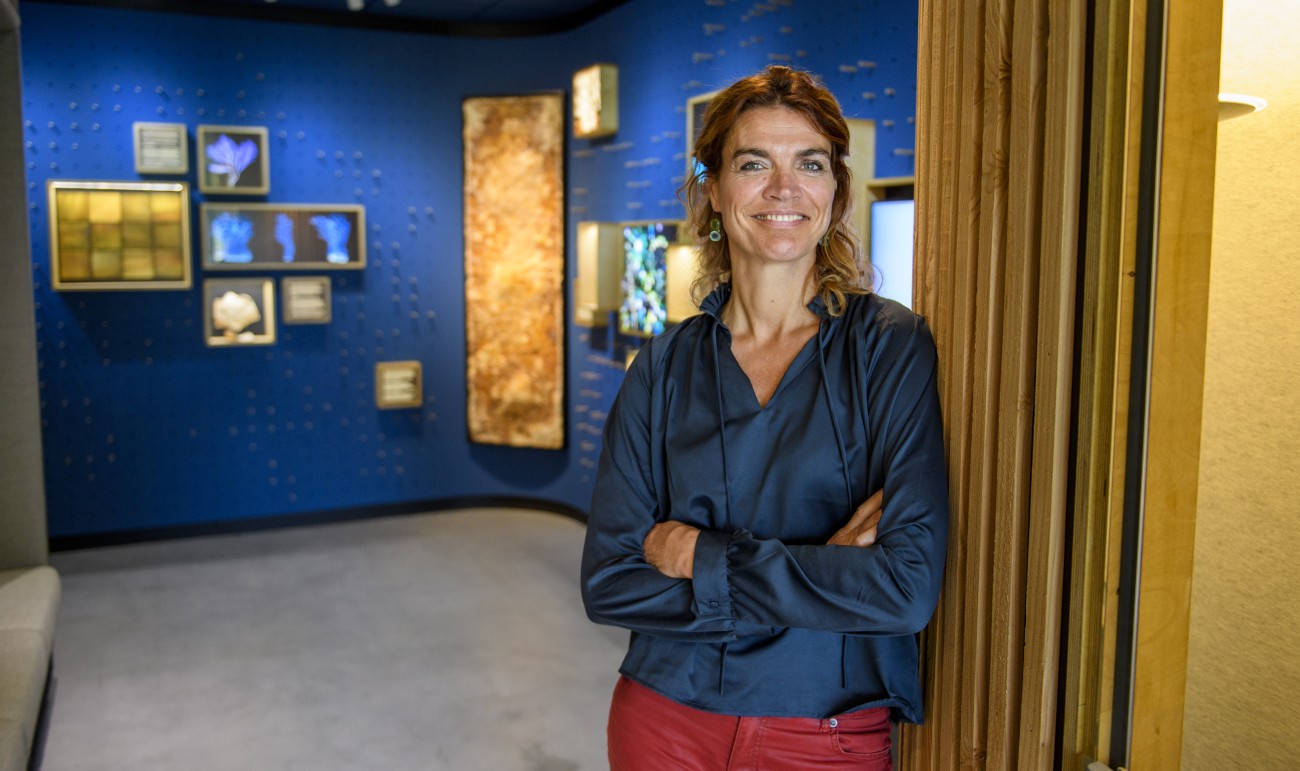
Today many people suffer from hunger or malnourishment, and in 2050 there will be an extra 3 billion mouths to feed. Should the future of food not be first and foremost about producing much more food than we do today?
Jeroen: "You might indeed think so, but that is not the answer. First of all, our natural resources - land, water, phosphate, nitrogen etcetera - are limited and we simply cannot increase food production in a manner that is anywhere near sustainable. If we just go on to produce food like we do today, we would need three earths to feed 10 billion people. But on a positive note: the amount of food we produce today is, in principle, already enough to feed almost 10 billion. We would need to change a few things however. In large parts of the world we must reduce overconsumption and change to more healthy diets. Secondly, we must restore the balance in our diet: the majority of our protein intake should be plant based instead of animal based. That's not too far-fetched, it's just like our forefathers ate only two generations ago."
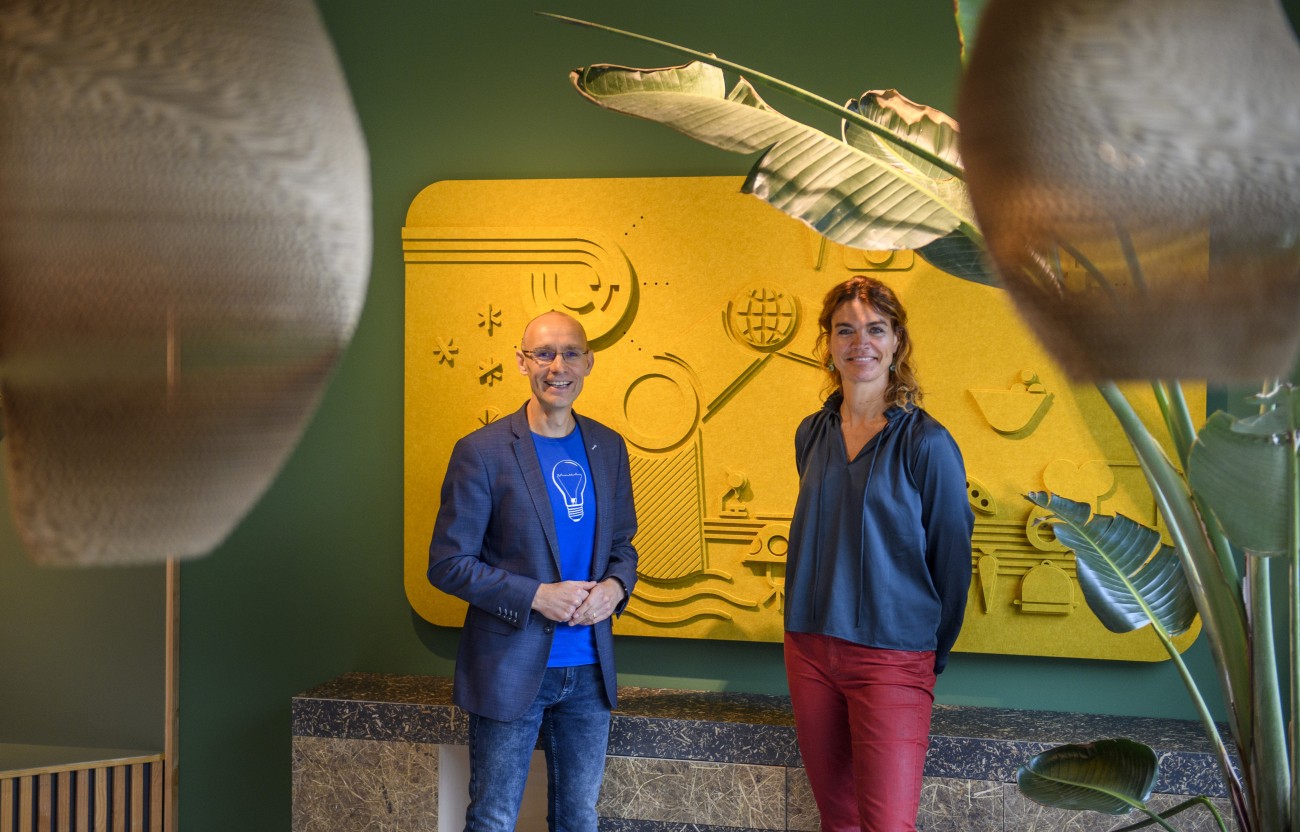
So will the solution have to come from the demand side rather than the supply side of food?
Marjolein: "Both are important. On the demand side, in the choices consumers make in buying, storing, preparing and eating food, there are major gains to be made. Take waste and spillage for example. In the Western world we throw away around 30 percent of all the food we buy. Most people are not even aware of how much food they waste, or of the simple actions they can take to reduce this. And there is waste and spillage everywhere in the food chain. Rest streams from industrial processing are now sometimes turned into animal feed or, worse, burned or dumped. What we need to do instead is develop circular agrifood systems, which is one of our focus themes, where residual food streams are upcycled and reused as high-value ingredients, ideally for human consumption."
Jeroen: "The starting point for us when we look at the food transition are the dietary needs and preferences of the consumer, in terms of health and sustainability. From that it follows what products, ingredients, resources and technologies you need. You really need such a system view that ties together consumption, processing and primary production of food if you want to create a future food system that can address the challenges we talked about."
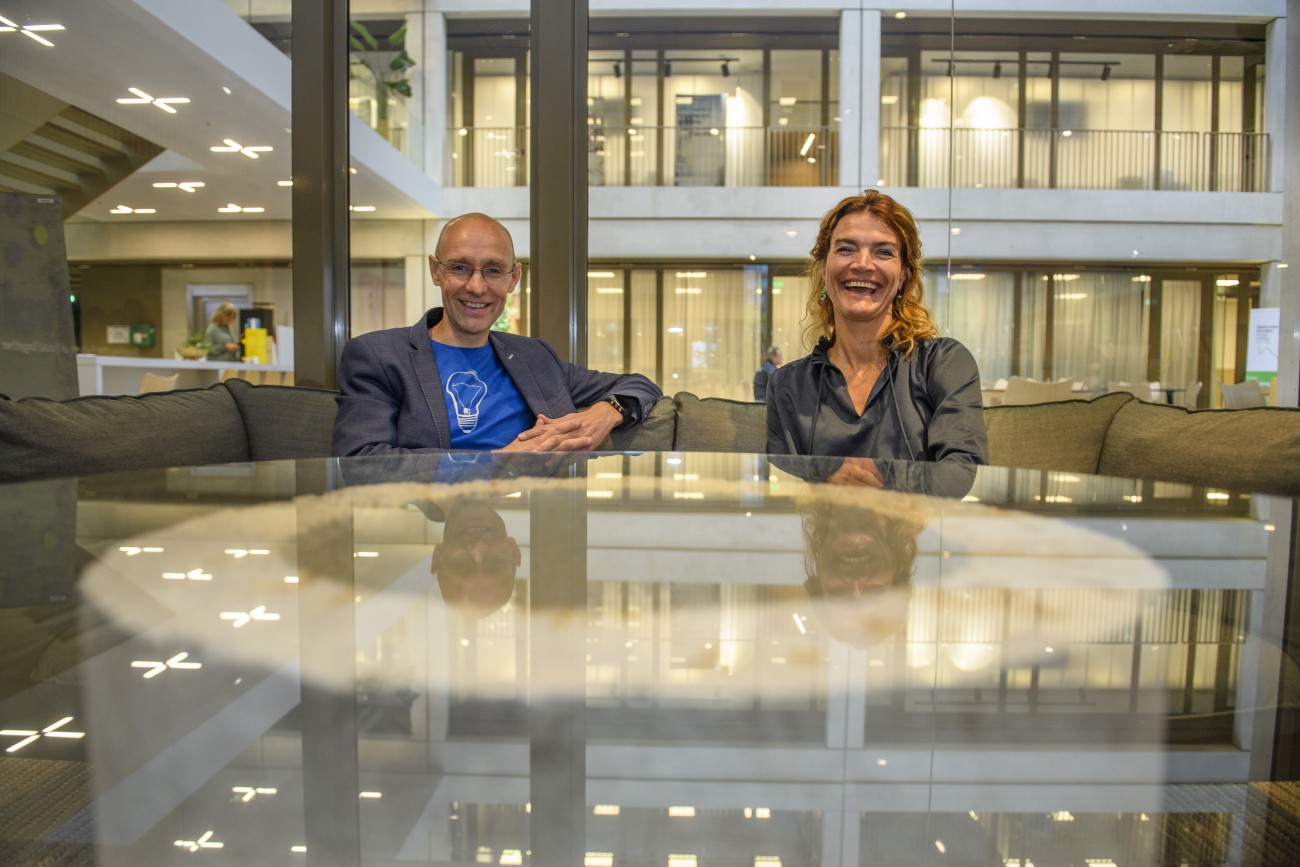
Since Foodvalley NL is located on the campus of Wageningen University & Research, what role do research and innovation play in creating this future food system?
Jeroen: "Research and innovation are tremendously important because we will need technology in every part of a new food system. At the beginning of the food chain, breeding new crops is very technology-intensive, and we will need to develop many of those. Crops for example that are optimized for human rather than animal consumption, or that are better adapted to the future climate with periods of extreme heat or water scarcity. The upcycling of residual food streams that Marjolein mentioned also requires technology. And at the consumer end of the food chain, we need to develop products that make it easier for people to take steps towards a more healthy and sustainable diet. It's easy to say we should stop eating meat and cheese, but many people, including myself, really enjoy these and this would be just too big a step. Therefore we need transitional products that may not be the ultimate in sustainability - because that would be eating beans directly - but that are made from these same beans and resemble meat or cheese as close as possible. I know from my time at Ojah where we developed a plant-based alternative for chicken, how much of a technological feat it takes to recreate the taste, colour, texture and cooking properties the people like and that fit their preferences and habits."
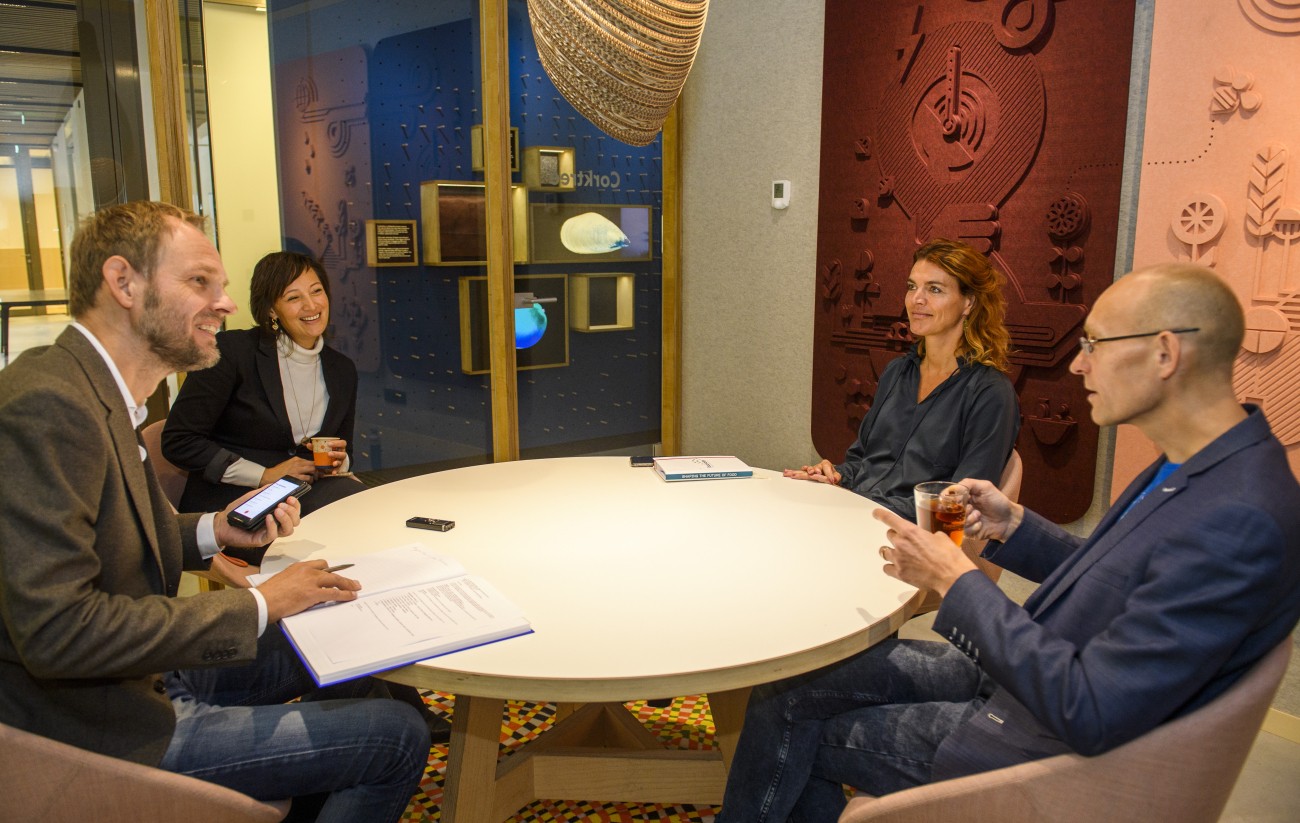
How does Foodvalley NL contribute to the transition to a new food system?
Marjolein: "It's good perhaps to clarify that we don't have a commercial motive. That means the nature of our work is not very transactional. We're not like investors who try to identify great new technologies or companies, invest an amount of capital and hope to create the next sexy unicorn. Our contribution is very different. Because just like one swallow doesn't make a summer, one unicorn will not change our food system. A lot more is needed for that: entire value chains with large financial interests at stake will need to be reorganized or created anew. So many things have to fall into place: not only are companies with ideas, technologies and capital needed, but also consumer sentiment, the political climate, rules and regulations and the zeitgeist have to be right. What we do is orchestrating the efforts of all stakeholders in the food transition and guide them in a certain direction. Because when we can connect all these stakeholders into a synergistic whole, together they can achieve much more than they would be able to do on their own."
Jeroen: "There are of course many organizations and programs and initiatives working on this big theme. I can confidently say that each and everyone of us here at Foodvalley NL knows in their minds and feels in their hearts why this transition is so important and urgent. What distinguishes us in this field is that is that we're also able to turn this serious issue into serious business. We are able, with the technological and entrepreneurial background myself and many of my colleagues have, to identify what we call game changers. These are the small companies and individuals that not only have a nice proposition, often based on a promising new technology, but also the talent, the creativity and the power to really make a difference. What they sometimes lack however are the skills and knowledge needed to set up a company and create a business. We can help these game changers to develop their propositions into a viable business model and to scale-up so they can potentially have a global impact on the future of food."
Marjolein: "In addition to supporting these game changers we also start and develop our own initiatives, like the Bean Deal that was signed in July of this year. There we took the lead and brought over 50 organizations together who committed themselves for at least ten years to increase the cultivation of protein-rich beans like fields beans, lupine and chickpeas in the Netherlands. Signees include farmers, food producers, research institutes, retailers and caterers, banks, the Ministry of Agriculture, Nature and Food Quality and more. That shows how powerful a network our partners can form, it also shows our ability to create the kind of alliances you need to bring about systemic change. To accelerate innovation on a more practical level, we've created a shared facility service that opens up over 350 facilities for research, testing, demonstration, scale-up or industrial-scale production for our partners."
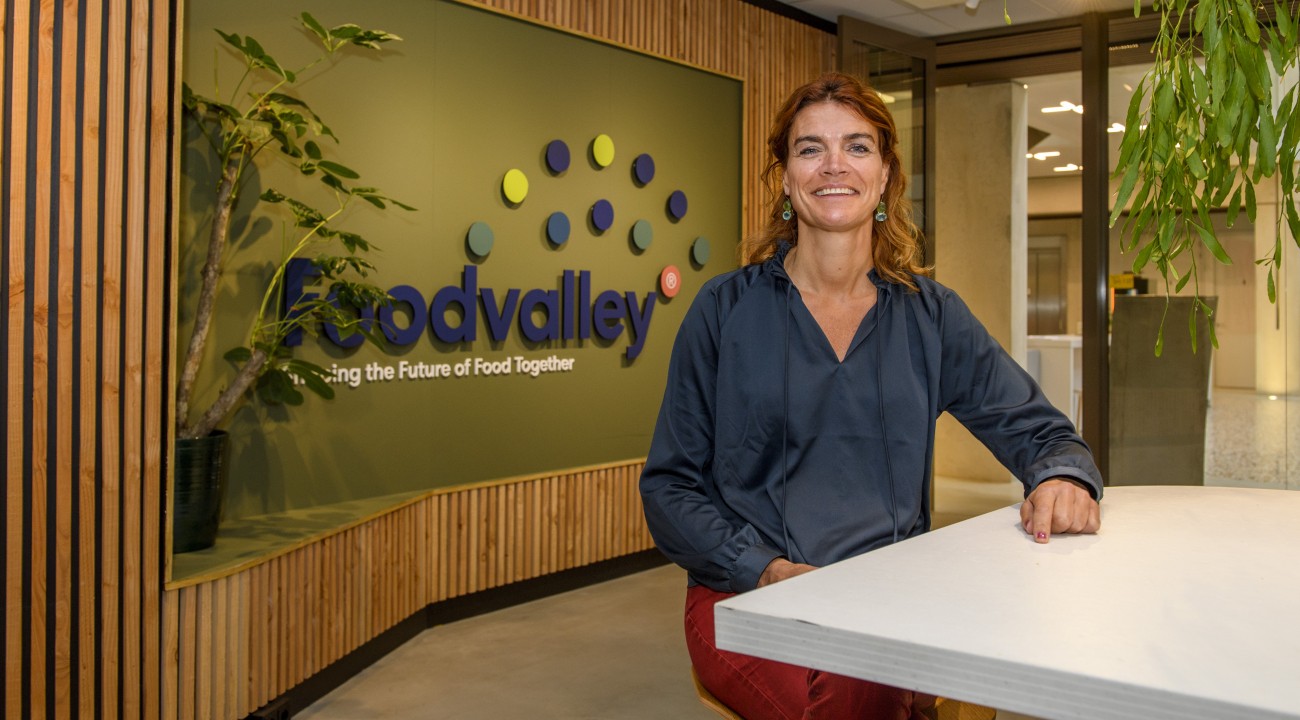
You call yourselves experts in ecosystem innovation, what does it take to make this approach work?
Jeroen: "We often ask this question ourselves and we're always looking for the magic ingredient that we can add to the mix. Many times it comes down to 'make it personal and get involved' with the companies in our ecosystem. The ones that recognize this are usually inclined to offer us a look at the new ideas they're working on, something that requires a high level of trust. And because we know what our ecosystem partners are working on, we can forge ties between start-up companies, where most of the creative and exciting new ideas originate, and the powerful corporates that have the size and resources the scale-up such ideas and create real impact with them. A few months ago Nestlé, one of the world's largest producers of dairy products and a partner of Foodvalley NL, asked us to help them identify developments and opportunities in plant-based dairy alternatives. We organized what we called an expedition for them where they got to meet eight companies from our ecosystem and talk in-depth about their innovative ingredients and technologies and how these might be beneficial for Nestlé. I'd be willing to bet money that this will at one point result in commercial deals between big Nestlé and one of our game changers."
About FoodValley NL
Foodvalley NL is an independent international organization working together with front runners to accelerate the global transition to a sustainable food system. Foodvalley NL has over 400 partners (NLO is one of them, and 40 percent are international) and employs around 30 people. Efforts are focused on three innovation fields:
- Sustainable Protein System: Shortening time to market for competitive, locally produced and consumed plant-based proteins.
- Healthy Choice the Easy Choice: Increasing the viability and appeal of healthy food options for all stakeholders in the food chain.
- Circular Agrifood Chain: Stimulating large-scale waste stream valorization to proliferate circular agrifood business models.
Marjolein Brasz is the Managing Director of Foodvalley NL, Jeroen Willemsen is the Innovation Lead Protein Shift.
